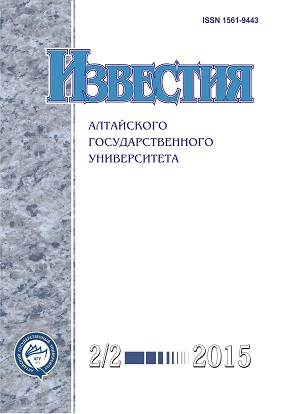Judicial Discretion vs. Resonableness: General-Purpose Issue
Abstract
The article studies how judicial practice is influenced by evaluation concepts and how disputes should be resolved when reasonableness comes into collision with standards of positive law. From 1994 to 2015 the Constitutional Court of the Russian Federation used the concept of reasonableness in one of thirteen decisions (1655 out of 23127), the Supreme Court of the Russian Federation uses this concept in approximately one of twenty cases (93,197 out of 4,501), the Supreme Arbitration Court of the Russian Federation — in one of fifty-three decisions (5,688 out of 306,068). One in four decisions of the European Court of Human Rights concerning the Russian Federation in 2014 deals with the provision of reasonableness (46 out of 209). Actually, there are many unsolved problems determined, in particular, by the conditions and limits of the concept of reasonableness interpretation. These problems are caused by lack of conceptual framework of the subject, as well as serious division of scholars’ opinions on many issues. The lack of theoretical studies of the research topic, the diversity of contentious issues in the application and interpretation of the concept makes the topic of this article important. In-depth study of the forms of implicating reasonableness in legal practice may contribute to the development of Russian legal science.
DOI 10.14258/izvasu(2015)2.2-04
Downloads
Metrics
References
Медведев Д.А. Выступление Президента Российской Федерации на VII Всероссийском Съезде судей // Судья. - 2008. - № 12.
Ожегов С.И. Словарь русского языка. - М., 1972.
Словарь русского языка : в 4 т. / под ред. А.П. Евгеньевой. - М., 1999. - Т. 4.
Даль В. Толковый словарь живого Великорусского языка. - М., 1994.
Игнатенко В.В. Оценочные понятия и административно-деликтный закон. - Иркутск, 1996.
Краснояружский С. Индивидуальное правовое регулирование // Советская юстиция. - 1989. - № 13.
Барак А. Судейское усмотрение. - М., 1999.
Комиссаров К.И. Задачи судебного надзора в сфере гражданского судопроизводства. - Свердловск, 1971.
Боннер А.Т. Применение нормативных актов в гражданском процессе. - М., 1980.
Анторопов В.Г. Правоприменительное усмотрение: понятие и формирование (логико-семантический аспект) : автореф. дис.. канд. юрид. наук. - Волгоград, 1995.
Власенко Н.А. Проблемы точности выражения формы права (лингво-логический анализ) : автореф. дис.. д-ра юрид. наук. - Екатеринбург, 1997.
Абушенко Д.Б. Судебное усмотрение в гражданском процессе : автореф. дис.. канд. юрид. наук. - Екатеринбург, 1998.
Ермакова К.П. Пределы судебного усмотрения : дис.. канд. юрид. наук. - М., 2010.
Берг Л.Н. Судебная практика как средство ограничения судебного усмотрения // Альманах современной науки и образования. - 2007. - № 7 (7), ч. 2.
Леушин В.И. Юридическая практика в системе социалистических общественных отношений. - Красноярск, 1987.
Аничкин Е.С. Эффективность конституционного законодательства Российской Федерации (к вопросу о систематизации критериев) // Государственная власть и местное самоуправление. - 2010. - № 10.
Аничкин Е.С. Конституционное законодательство Российской Федерации (причины, типология случаев и пределы неоднородности) : дис.. д-ра. юрид. наук. - Тюмень, 2003.
Цихоцкий А.В. Преодоление пробелов в праве посредством аналогии // Гуманитарные науки в Сибири. - 2007. - № 1.
Коваленко К.Е. Правовая реальность и принцип разумности: понятие и характер соотношения. - Барнаул, 2013.
Коваленко К.Е. Учение И.А. Ильина о правосознании. - Барнаул, 2014.
Kovalenko K.E. Some Aspects of Reasonableness in Law // World Applied Sciences Journal. - 2014. - V. 29, № 7.
Грибанов Д.В. Правовая модель инновационного развития общества // Известия высших учебных заведений. Правоведение. - 2011. - № 1 (294).
Грибанов Д.В., Коваленко К.Е. Разумность как источник англосаксонской правовой системы // Известия Алт. гос. ун-та. - 2015. - № 2/1 (86). D0I:10.14258/izvasu(2015)2.1-07.
Izvestiya of Altai State University is a golden publisher, as we allow self-archiving, but most importantly we are fully transparent about your rights.
Authors may present and discuss their findings ahead of publication: at biological or scientific conferences, on preprint servers, in public databases, and in blogs, wikis, tweets, and other informal communication channels.
Izvestiya of Altai State University allows authors to deposit manuscripts (currently under review or those for intended submission to Izvestiya of Altai State University) in non-commercial, pre-print servers such as ArXiv.
Authors who publish with this journal agree to the following terms:
- Authors retain copyright and grant the journal right of first publication with the work simultaneously licensed under a Creative Commons Attribution License (CC BY 4.0) that allows others to share the work with an acknowledgement of the work's authorship and initial publication in this journal.
- Authors are able to enter into separate, additional contractual arrangements for the non-exclusive distribution of the journal's published version of the work (e.g., post it to an institutional repository or publish it in a book), with an acknowledgement of its initial publication in this journal.
- Authors are permitted and encouraged to post their work online (e.g., in institutional repositories or on their website) prior to and during the submission process, as it can lead to productive exchanges, as well as earlier and greater citation of published work (See The Effect of Open Access).








